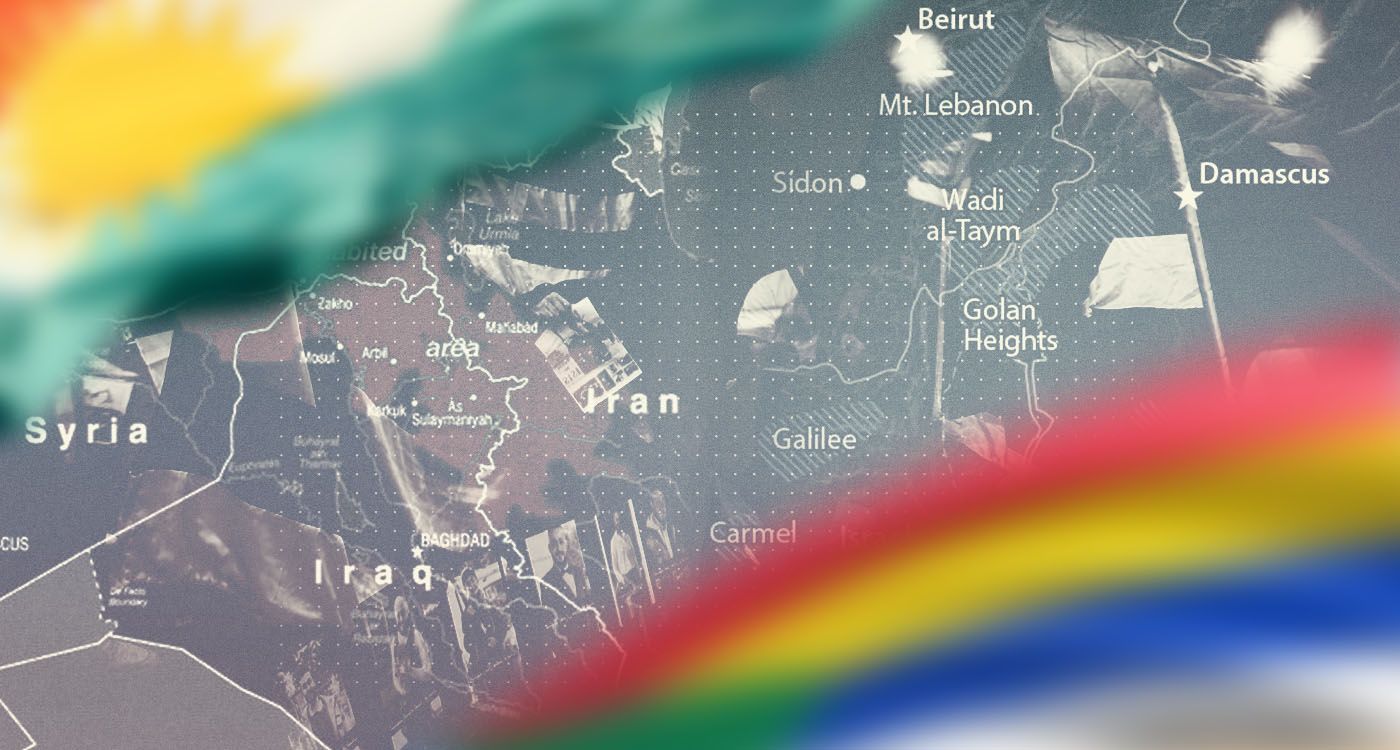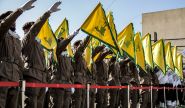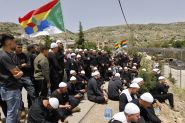- Home
- Middle East
- Why No States for the Druze or the Kurds?

©This is Beirut
Self-determination in the Middle East is inconsistent. For Muslim Palestinians, statehood is seen as an unfulfilled destiny. Yet for religious minorities like the Druze or ethnic groups like the Kurds, pursuing sovereignty is branded as betrayal or capitulation to imperialism. There’s no clear logic to why Israel should be divided into two states while Syria must remain whole.
Recent attacks by Islamist jihadist groups on the Druze in southern Syria highlight why non-Arab and non-Muslim minorities need their own sovereign states, independent of the Muslim Arab majority that often claims exclusive rights to sovereignty.
Across the Middle East, except in Israel, non-Muslim and non-Arab minorities are steadily shrinking, some disappearing entirely. The assault on Syria’s Druze shows what happens when minorities rely on the international community, the state, or the Arab Muslim majority for protection: they suffer.
The Jewish people learned this lesson a century ago and have since vowed to maintain their sovereignty—the only guarantor of their safety and equal rights, unlike the second-class status they often faced in Muslim-majority states.
Questioning the borders drawn by colonial powers like France and Britain in 1920 is often taboo, despite criticisms of the Sykes-Picot Agreement from figures like US Envoy Tom Barrack. Many Arab nationalists and Islamists also reject these borders, advocating for their erasure to create a unified Arab nation or Islamic Caliphate.
Yet, objections arise primarily when border changes grant sovereignty to non-Muslims. When Muslim-majority entities gain control over disputed territories, Arab and Muslim opposition is typically muted.
In 1939, Turkey annexed a disputed territory from Syria, then under French mandate, now called Hatay Province (known to Arabs as Liwa al-Iskandaronah). At around 5,600 square km, it matches the size of the West Bank. Syria claimed the territory until 1996, when Hafez al-Assad relinquished it to Turkey to avoid conflict and secure the handover of Kurdish PKK leader Abdullah Ocalan. Few Arabs or Muslims, including Syrians, seem aware of or concerned by this concession—perhaps because it was to a fellow Muslim government.
Contrast this with the Golan Heights, a 1,800 km² territory under Israeli sovereignty for 58 years after having been under Syrian control for only 47. Why is the Golan deemed rightfully Syrian but not part of Mandate Palestine or modern Israel? The Arabs and Muslims in general, including many Syrians, obsess over the Golan Heights and the West Bank, yet ignore the loss of Hatay Province. There’s no consistent logic here.
Arab acceptance of secession is equally erratic in other places. South Sudan gained independence after immense bloodshed, with little Arab or Muslim objection.
The Shatt al-Arab waterway, disputed between Iraq and Iran, was conceded by Saddam Hussein to Iran while he postured as a champion of Palestinian liberation 1,000 km away. Saddam also used sarin gas to crush Kurdish separatists who—despite their distinct Iranian ethnicity, language, and culture—are deemed unworthy of statehood.
Meanwhile, Palestinians, whose leaders were often more preoccupied with internal power struggles than with building institutions for autonomy, are seen as uniquely deserving of sovereignty.
Self-determination is a right, but it does not guarantee well-governed and prosperous nations. Each population will have to weigh the pros and cons of going it alone or staying within the borders of a bigger state.
Self-determination should be straightforward. In southern Syria, for instance, communities could vote—town by town, village by village—on whether to secede or remain. Damascus should respect the outcome. The same applies to the Kurds in northeast Syria; denying their right to self-determination lacks justification.
Secure, sovereign populations are less likely to fuel conflict. Granting minorities like the Druze and Kurds their own states could reduce tensions and foster stability in the Middle East.
Once smaller states achieve stability and contentment, they could explore unification or merger, similar to the European Union or the United States.
Self-determination and sovereignty aim to ensure populations are secure, prosperous, and content. When a state’s sovereignty fails to deliver these outcomes, it should be renegotiated—whether by dividing nations like Syria, Iraq, or Lebanon, or merging them, as Iraq and Syria attempted in the 1970s. State borders should remain flexible and always negotiable, serving the needs of their people.
Read more




Comments